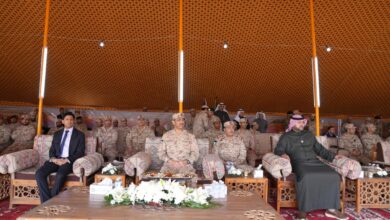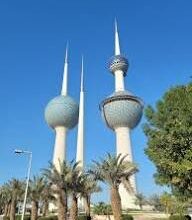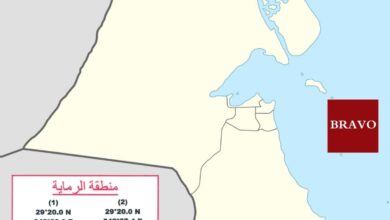
PUBLISHED IN COOPERATION WITH
Kuwait’s active participation in OPEC’s key decisions and negotiations since 1960 and new developments like the Al-Nokhatha field and Al Zour refinery exemplify the country’s pivotal role in global energy security.
In an exclusive interview with The Business Year’s (TBY) team in Kuwait, Secretary-General of the Organization of Petroleum Exporting Countries (OPEC), Haitham Al Ghais, spoke about the role of OPEC in stabilizing the global oil market, and warned that under-investment in the industry would likely trigger market volatility. The secretary-general, who hails from Kuwait, also highlighted the vital role played by Kuwait in ensuring global energy stability.
The latest World Oil Outlook (WOO) by OPEC envisions a US$17-trillion investment need by 2050, even as calls for halting new oil projects gather steam. How critical are these investments and potential risks?
There are no signs of global oil demand peaking anytime soon. In our WOO, we see oil demand at just over 120 million barrels per day by 2050. Consequently, sufficient investments in capacity and infrastructure to produce, refine and distribute the oil are of utmost importance. We need to invest adequately—today, tomorrow, and many decades into the future—in a manner reflecting realistic assumptions about what each energy source can offer and given the need to reduce emissions.
Underinvestment would lead to market tightness and volatility, with all the negative economic and social consequences for populations. There are manifold energy security risks stemming from the narrative that oil is part of the past, for both producers and consumers. The right investment is paramount. The energy futures of more than 8 billion people, or 9.7 billion by 2050, depend on it.
How do Kuwait and its advancements, such as the recent discovery of the offshore Al-Nokhatha oil and gas field align with OPEC’s overarching goals and contribute to stability in the global oil market?
Kuwait was a Founder Member of OPEC back in 1960, and over the years Kuwait’s many contributions to OPEC stand as a testament to the country’s unwavering dedication to the organization’s principles and its focus on a stable and balanced market. This continues today. The Al-Nokhatha field with huge commercial amounts of light oil and associated gas, is just one upstream example.
We should also not forget the downstream, with the Al Zour refinery at 615,000 bpd, the world’s largest grass-root refinery. As OPEC continues to navigate the complexities of a complex energy landscape, Kuwait’s active participation in the organization’s key decisions and negotiations remain indispensable. In this respect, I am certain that Kuwait will continue to be as integral to OPEC’s future as it has been to its past, under the wise and able leadership of His Highness the Amir Sheikh Meshal Al-Ahmad Al-Jaber Al-Sabah.
Could you elaborate on COP29 outcomes and the role that technologies play in reducing emissions?
To put it simply, we will need an all-energies approach. Otherwise, the world cannot meet rising energy demand, maintain energy security, and ensure affordable universal energy access. We will need an all-peoples approach. The capacities, national circumstances, and development priorities of all countries must be considered to ensure that no one is left behind.
And we will need an all-technologies approach. The world needs to develop and finance all forms of technologies to help reduce emissions while meeting demand. With regard to technologies, our member countries are mobilizing cleaner technologies to reduce industry emissions and making major investments in renewables and hydrogen capacity.
Primary energy demand is expected to grow by 24 percent by 2050. What are the main drivers behind this growth, and what role will oil play in the future?
There are many reasons for the increasing need for energy, such as population growth and urbanization, a growing middle class, economic expansion, expanding energy access and emerging technologies. For example, by 2030 alone, over half a billion people are expected to move into cities across the world. This is the equivalent of around 150 new cities the size of Kuwait City. Moreover, billions of people are playing energy catch-up.
We should remember that oil consumption in developing countries currently ranges from less than one to just below two barrels per person per year, compared to nine in the EU and 22 in the US. The future of energy and oil demand growth lies primarily within the non-OECD developing world. From now until 2050, non-OECD oil demand is set to expand by over 28 million barrels per day. Overall, we see oil retaining the largest share in the global energy mix, at over 29 percent by 2050.
[ Haitham Al Ghais assumed office as Secretary-General of OPEC on 1 August 2022. With more than 30 years of experience in the global energy industry, he has held key senior managerial positions at Kuwait Petroleum Corporation in Kuwait, as well as in Beijing and London. He has previously represented Kuwait in multiple OPEC governing bodies and various other international institutions, such as the International Energy Forum and the Oxford Institute for Energy Studies.
He played a leading role in the historic Declaration of Cooperation between OPEC and non-OPEC oil-producing countries. In 2017, he was appointed as the first Chairman of the Joint Technical Committee that helped facilitate the development of the methodology for monitoring the conformity of production adjustments, and he was the leader of Kuwait’s team involved in finalizing and signing the Charter of Cooperation. ]













